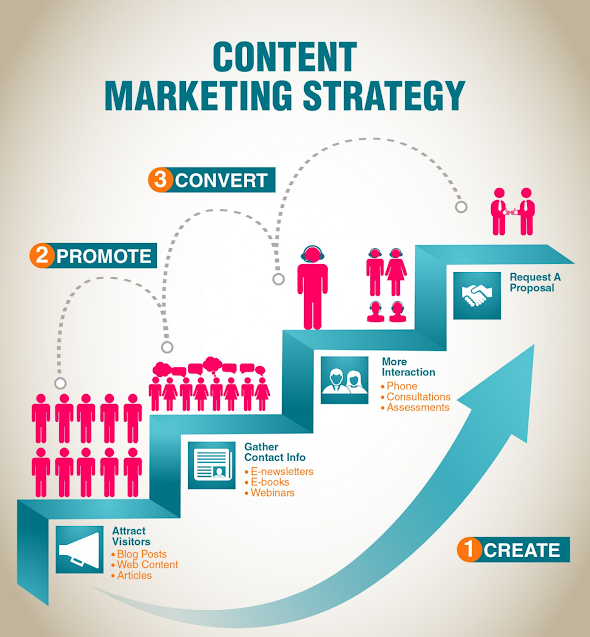Content Marketing
Content marketing is a strategic marketing approach that involves creating and distributing valuable, relevant, and consistent content to attract and engage a target audience. The primary goal of content marketing is to build trust, establish authority, and ultimately drive profitable customer actions, such as purchasing a product or service.
Some aspects of content marketing:
- Content Creation: Content marketing involves the creation of various types of content, including blog posts, articles, videos, infographics, podcasts, social media posts, and more. The content should be informative, entertaining, or educational, depending on the audience's preferences and needs.
- Audience-Centric: Successful content marketing is centered around understanding the target audience's interests, pain points, and preferences. Content is tailored to address the specific needs and questions of the audience.
- Value and Relevance: Content should provide value to the audience. It should answer their questions, solve their problems, or entertain them. Relevance is key; the content must align with the audience's interests and the brand's goals.
- Consistency: Consistency in content creation and distribution is important. Regularly publishing high-quality content helps build an audience and keep them engaged over time.
- Distribution: Creating great content is only half the battle. Content marketers must also have a strategy for distributing their content through various channels, such as websites, social media platforms, email newsletters, and more.
- SEO (Search Engine Optimization): Content should be optimized for search engines to improve its visibility in search results. This involves using relevant keywords, meta tags, and other SEO techniques to increase organic traffic.
- Storytelling: Effective content marketing often incorporates storytelling. Stories can captivate the audience, making the content more relatable and memorable.
- Measuring and Analyzing: Content marketers use various metrics and analytics tools to track the performance of their content. This includes measuring website traffic, engagement, conversion rates, and other key performance indicators (KPIs).
- Adaptation: Content marketing strategies should be flexible and adaptable. Marketers should be willing to adjust their approach based on audience feedback and changing market conditions.
- Long-Term Strategy: Content marketing is typically a long-term strategy. It takes time to build an audience, gain trust, and see significant returns on investment.
- Brand Building: Content marketing also plays a crucial role in brand building. Consistent, high-quality content can help establish a brand's identity, values, and authority in its industry.
Content marketing is widely used across various industries and has become an integral part of digital marketing strategies. When executed effectively, it can lead to increased brand awareness, customer loyalty, and business growth.
.jpeg)
